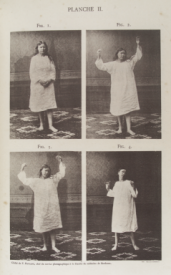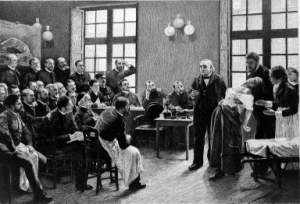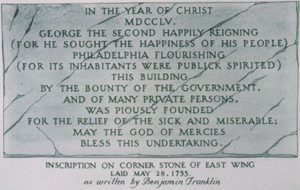Early alienists (mental health specialists) were men. They attributed much of women’s mental health issues to “female” problems with their ovaries or uterus. In 1893, Dr. Thomas Morton, Surgeon to the Pennsylvania Hospital and Chairman of Philadelphia’s Committee on Lunacy, wrote that surgical advances had made surgeries to the abdominal cavity relatively safe. Consequently, procedures removing the uterus and ovaries had been successful and had provided relief for patients with diseases of these organs. He added: “Frequently, such diseases are complicated by hysteria . . . and various forms of well recognized insanity which are thought to originate in and be maintained by the diseased or disordered state of these organs.”
When female organs were removed for disease, women were often relieved or cured of their accompanying mental disorders, said Morton, but just as often, were not. Some surgeons were evidently jumping onto an ovary-removal bandwagon, and Morton cautioned against an overenthusiastic use of these operations. “In many instances, insanity has resulted from this operation,” he warned. Morton gave a strong opinion that unless female organs were actually diseased, there was no justification for removing them. He included in his article a legal opinion from a colleague on the Committee on Lunacy, who concurred. “I am of the opinion that the operation . . . unless necessary to save life, is not only illegal, but, in view of its experimental character, is brutal and inhuman and not excusable on any reasonable ground.”
These two men had almost remarkable restraint toward women in an age when patronization and coercion were much more often the rule. Morton, in particular, recognized that symptoms of hysteria and other common “female” types of insanity might be associated with their uterine or ovarian distress, without being caused by it.
______________________________________________________________________________________


